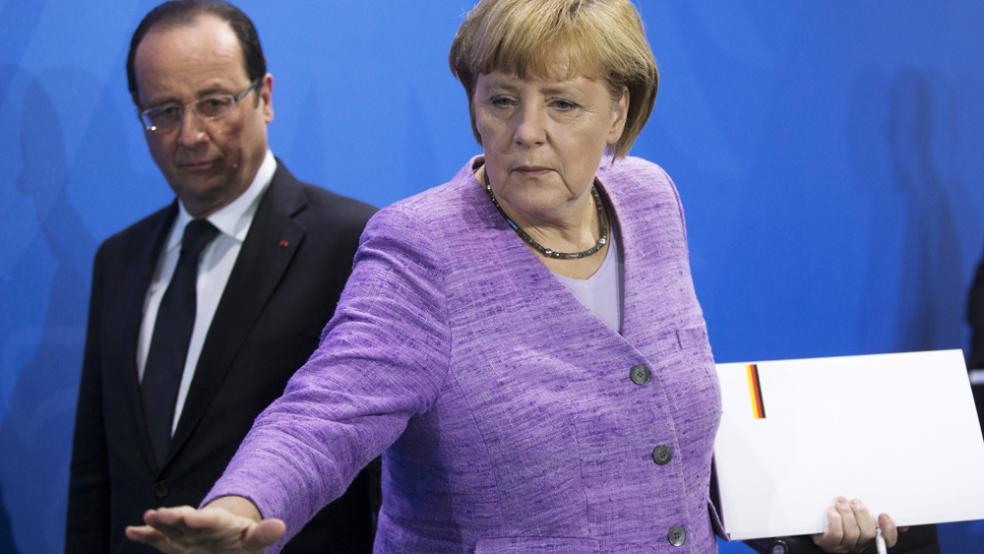BERLIN - In his most direct appeal for the support of the American people for strikes against Syria, President Obama rehashed familiar arguments last night about the need for deterrence and America’s role in policing “immoral” actions.
Most pundits’ reactions to Obama’s speech were unenthusiastic, with few believing it would sway the American public toward supporting
the war. And if Obama hoped his speech would sway international opinion – he’s failed entirely. In Berlin and across Europe, it was met with a collective yawn.
Only one of America’s NATO allies – France – has expressed support for the military strikes. British Prime Minister David Cameron is sitting on the sidelines after Parliament struck down a motion authorizing military action. German Chancellor Angela Merkel, a week ahead of national elections, has been silent – though her actions spoke louder than words. She refused to sign a G-20 declaration condemning Assad, joining the only other non-signatories, Russia and China.
Merkel eventually changed her mind, citing the lack of European unity on the issue. “I decided that Germany would only sign once we managed to find a common European position,” she told supporters at a rally in Dusseldorf.
OPPOSITION TO ACTION IN SYRIA
But her reluctance to offer more enthusiastic support for Obama’s initiative is understandable a week ahead of a federal election here. Opposition to military action in Syria is spreading quickly among the German press and public.
One prominent Berlin tabloid, the Bild am Sonntag, is reporting that high-level German national security officials do not believe Syrian President Bashar al-Assad ordered the attacks, a narrative that’s gaining traction in Berlin’s foreign policy community.
This same paper is also pushing the idea that Obama has lost his international mojo. In a story this morning, it calles the United States a “shrinking power” and said U.S. inaction will embolden other dictators.
Not that Germany has any interest in getting involved in Syria. Germans typically are opposed to any kind of military intervention, especially in the wake of the unpopular Afghan war. Syria is no exception: Nearly 60 percent of the Germans oppose intervention.
Merkel’s political opponents are trying to make her refusal to condemn Syria a campaign issue. Sigmar Gabriel, chair of Merkel’s main opposition party, the Social Democrats, called her refusal a “complete breakdown of German foreign policy.”
But Merkel has shrugged off this criticism. She’s likely to sail to a third term as chancellor next week.
UNPOPULAR IN FRANCE
François Hollande has not been so fortunate. His support of the U.S. position is incredibly unpopular in France, with two thirds of the French public disapproving of him. The French media is portraying his as a lackey of President Obama. One popular comedy show contained a skit of Hollande asking Obama’s permission to use the bathroom. But if Hollande is having second thoughts, he’s not showing it. He defended his decision to bypass French parliament, according to reports, then slammed David Cameron for not taking the same approach.
“He committed a schoolboy error. He overestimated his strength and didn’t find a way of convincing his [parliamentary] majority,” Hollande said of Cameron. “Cameron comes out of this affair weakened. And it’s not good for Great Britain.”






